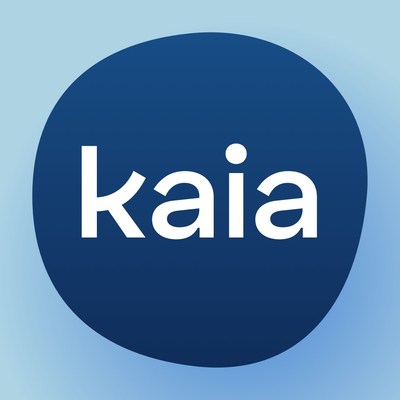Kaia Health’s App-Based Back Pain Treatment Outperforms Standard Physiotherapy in Clinical Trial

NEW YORK, May 7, 2019 /PRNewswire/ — Kaia Health, a digital therapeutics company, announced results from the first randomized controlled trial of its app-based therapy program for patients with non-specific low back pain. Detailed results of the study were published in the journal NPJ Digital Medicine and showed that patients using Kaia, a downloadable app for back pain, reported significantly lower pain levels compared to the control group treated with physiotherapy and online education.

“This study can help add to the growing body of evidence that generally supports the use of multimodal treatments for chronic conditions,” said Thomas R. Tölle, M.D., Ph.D., Head of Pain Medicine, Technical University Munich, Germany. “Within this study, we saw a notable benefit for people managing low back pain when delivering multimodal treatment through the digital modality of the smartphone, as is done in the Kaia app.”
Low back pain is one of the leading causes of global disability and treatment is expensive.1,2 In the U.S., costs to treat low back pain exceed $100 billion annually3 and back pain is one of the most common reasons for missed work4, accounting for more than 264 million lost work days annually5.
“As a company, we want to support the improvement of the current standard of care for people living with back pain,” said Konstantin Mehl, Founder and CEO, Kaia Health. “And while these study results are promising, we will be initiating a similar U.S.-based study looking at the use of the Kaia app for self-management of back pain.”
About the Randomized Controlled Trial6
In the study, analyzed patients with low back pain were treated using two methods. The first group used Kaia Health’s multi-platform mHealth app (n=42), while a second control group was treated using a standard therapy program consisting of 6 once-weekly, in-person physiotherapy sessions guided by a certified therapist plus sophisticated online education about back pain delivered to patients weekly with a motivating email (n=44). Both groups were encouraged to live an active lifestyle and perform the therapeutic exercises at home, but the app provided three therapy modules – back pain education; physiotherapy; and mindfulness and relaxation techniques – and recommended a 3 to 4 times-per-week exercise plan that could be personalized for each user. App users also could interact with a human coach via the app if they had questions.
Both the control and Kaia app treatment groups experienced significant pain reduction over the course of 12 weeks. However, after 3 months, patients using the Kaia app reported substantially larger decrease in their back pain intensity than control group patients: 2.4 vs. 2.0, respectively, on a numeric rating scale ranging from 0 to 10 (where higher numbers represent more pain). The decrease suggests Kaia may be an effective treatment for low back pain over a 3-month timeframe.
About Kaia App
Kaia is a smartphone-based approach for managing chronic back pain.
In Europe, Kaia is regulated as a Class I medical device. Currently, Kaia is working with the U.S. Food and Drug Administration (FDA) to seek regulatory clearance in the U.S.
About Kaia Health
Kaia Health is a digital therapeutics company that creates accessible, evidence-based treatments for a range of disorders including back pain and COPD. Working with experts in various medical fields, the company uses technology such as machine learning algorithms, to deliver individualized app interventions that aim to empower and motivate patients to take control and self-manage their condition with digital alternatives from their home using devices they already own (i.e., smartphones and tablets). Kaia Health is member of the Digital Therapeutics Alliance (DTA), an international association of manufacturers that set industry standards for what clinical evidence levels are required to call a product a digital therapeutic. Kaia Health is located in New York City. For more information about Kaia Health, visit www.kaiahealth.com.
@KaiaHealth
Facebook.com/KaiaHealth
#kaiahealth #backpain
References:
- Dalys, G. B. D. & Collaborators, H. Global, regional, and national disability-adjusted life-years (DALYs) for 333 diseases and injuries and healthy life expectancy (HALE) for 195 countries and territories, 1990-2016: a systematic analysis for the Global Burden of Disease Study 2016. Lancet (Lond., Engl.) 390, 1260–1344 (2017).
- Maher, C., Underwood, M. & Buchbinder, R. Non-specific low back pain. Lancet (Lond., Engl.) 389, 736–747 (2017).
- Katz, J. N. Lumbar disc disorders and low-back pain: socioeconomic factors and consequences. J. bone Jt. Surg. Am. Vol. 88(Suppl 2), 21–24 (2006).
- Vallfors B. Acute, Subacute and Chronic Low Back Pain: Clinical Symptoms, Absenteeism and Working Environment. Scan J Rehab Med Suppl 1985; 11: 1-98.
- The Hidden Impact of Musculoskeletal Disorders on Americans, U.S. Bone and Joint Initiative, 2018.
- Toelle, Thomas R. et al. App-based multidisciplinary back pain treatment versus combined physiotherapy plus online education: A randomized controlled trial. NPJ Digital Medicine, volume 2, Article number: 34 (2019)
Media Contact:
Leslie Humbel
P: 312-729-1781
E: leslie.humbel@edelman.com
View original content to download multimedia:http://www.prnewswire.com/news-releases/kaia-healths-app-based-back-pain-treatment-outperforms-standard-physiotherapy-in-clinical-trial-300845392.html
SOURCE Kaia Health
